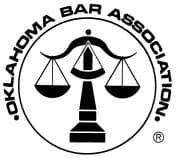
08 Oct Is an LLC Right for Your Business? Pros, Cons, and What to Consider
Starting a business is an exciting journey, but choosing the right legal structure is one of the most important decisions you’ll make. Among the options – sole proprietorship, partnership, corporation – many entrepreneurs consider forming a Limited Liability Company, or LLC.
But is an LLC right for your business? Let’s break down the pros, cons, and key factors to consider before making your decision.
What Is an LLC?
A Limited Liability Company (LLC) is a legal structure that combines aspects of corporations and partnerships. It offers liability protection like a corporation while maintaining the flexibility and pass-through taxation of a partnership or sole proprietorship.
This means that personal assets are generally protected from business debts and lawsuits, while profits and losses can pass directly to your personal tax return.
Pros of Forming an LLC
1. Limited Liability Protection
One of the biggest advantages of an LLC is that it helps shield your personal assets from business liabilities. If your business faces a lawsuit or owes debts, your home, car, and personal savings are generally protected.
2. Flexible Tax Options
LLCs offer pass-through taxation, meaning profits are taxed once at the personal level rather than twice like in a corporation. Some LLCs can even choose to be taxed as an S-Corporation, potentially reducing self-employment taxes.
3. Minimal Compliance Requirements
Compared to corporations, LLCs typically have fewer ongoing compliance obligations. There are no mandatory shareholder meetings or strict record-keeping requirements, no annual franchise tax fee, making them simpler to maintain.
4. Credibility
Operating as an LLC can give your business added credibility with customers, suppliers, and potential investors rather than operating as a sole proprietor. It signals that you’re serious about your business and committed to protecting both yourself and your stakeholders.
Cons of Forming an LLC
Self-Employment Taxes
Unless you elect S-Corporation taxation, LLC owners may be subject to self-employment taxes on all business profits. This can result in higher tax obligations compared to some corporate structures.
Complexity Compared to Sole Proprietorships
While simpler than corporations, LLCs are more complex to form and operate than a sole proprietorship, requiring more paperwork and legal guidance to ensure compliance.
Key Considerations Before Forming an LLC
Before forming an LLC, consider your business goals, anticipated income, number of owners, and level of risk. Consulting with a legal professional can help you determine whether an LLC is the best fit and guide you through the specific requirements.
Ready to Protect Your Business?
Forming an LLC can offer significant benefits – but it’s not the right choice for every business. At Gary Crews Law, we help entrepreneurs understand their options, weigh the pros and cons, and set up an LLC or alternative structure that aligns with their goals. Contact our team today to get expert guidance and ensure your business is built on a solid legal foundation!







